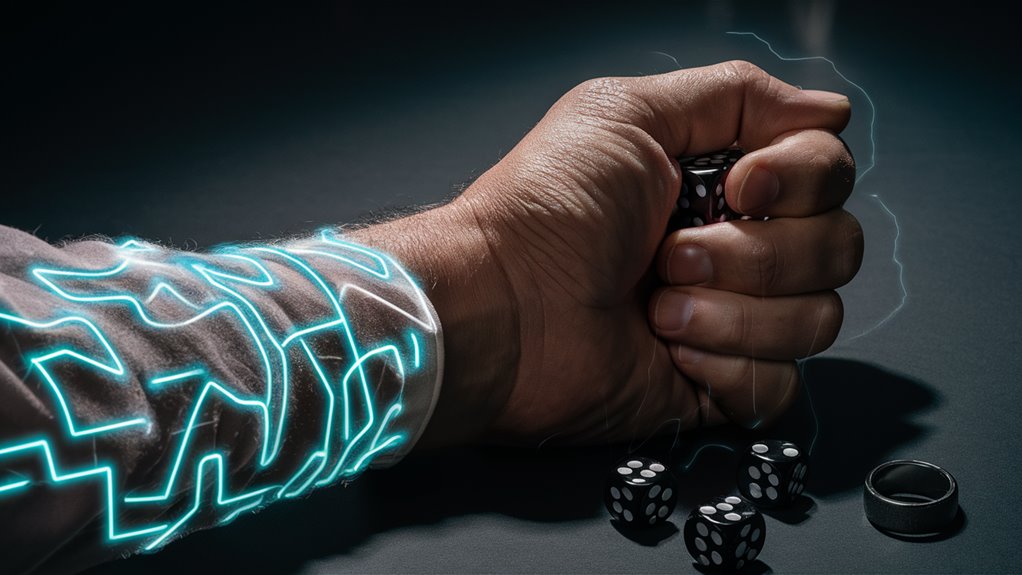
Understanding Gambling Addiction: Causes, Effects, and Treatment Options

Gambling addiction, also known as gambling disorder, changes brain chemistry and behavior. Like addiction to drugs, it affects the brain’s reward system, creating strong neural pathways that lead to a persistent need to gamble. 온카스터디
The Brain Science Behind Gambling
The brain reacts to gambling by releasing dopamine, intensifying the urge to gamble. This disrupts decision-making processes, encouraging continued gambling even when it is harmful.
Effects and Costs to Society
Gambling addiction has several significant impacts:
- Family breakdowns
- Financial ruin
- Worsening mental health
- Annual costs reaching $40,000 per individual
Ways to Treat Gambling Addiction
Cognitive Behavioral Therapy (CBT)
CBT helps individuals identify triggers and develop coping strategies.
Help from Groups and Professionals
- Group therapy for support and accountability
- Professional counseling to explore deep-seated issues
- Family therapy to repair relationships
Preventing and Managing Gambling Addiction
Effective prevention strategies include:
- Avoiding gambling environments
- Monitoring and managing finances
- Participating in support groups
- Developing new behavioral skills
Early intervention and appropriate treatment are key to recovery.
Understanding the Science of Addiction
The Science of Addiction: Brain Paths and Genes
How the Brain’s Reward System Works
Gambling addiction stems from activities within the brain’s reward system, primarily involving dopamine and neural signals.
During gambling, dopamine release creates a high similar to drug effects, reinforcing addictive behaviors by continually seeking this state.
Brain Changes Affecting Decisions
The prefrontal cortex, crucial for control and decision-making, undergoes significant changes during addiction.
Reduced activity in this region impairs decision-making and control, complicating efforts to stop gambling.
The brain strengthens pathways linked to gambling while weakening pathways for self-control.
Roles of Genes and Surroundings
Genetics play a significant role, with individuals from families with addiction issues at higher risk.
Environmental triggers and stress can activate genetic predispositions, laying the groundwork for addiction.
This combination of biological and environmental factors informs targeted treatment strategies.
Main Brain Parts in Addiction:
- Dopamine management
- Activating reward pathways
- Functioning of the prefrontal cortex
- Neural pathway changes
- Genetic markers of risk
Understanding these points aids modern therapeutic approaches and treatment planning.
Warning Signs and What Puts You at Risk
Warning Signs and Risk Factors of Gambling Addiction

Behavior Points to Notice
Early identification relies on recognizing clear behavioral indicators.
Main signs include:
- Increasing time and money spent on gambling
- Obsessively trying to recover losses
- Concealing extent of gambling behavior
- Inappropriate borrowing or stealing to gamble
Mental Signs
Mental and emotional symptoms manifest as:
- Preoccupation with gambling
- Significant mood changes
- Distress when attempting to stop
- Irritability when unable to gamble
Main Risk Points
Genes and Past
- Family history of addiction
- Early age of gambling onset
- Significant early gambling successes
Mental Health Links
- Existing conditions like depression or anxiety
- ADHD
- Stress-related disorders
Person Core
- Compulsive competitiveness
- Thrill-seeking tendencies
- Impulsive behavior
- Easily bored
Things Around That Matter
- Higher incidence in males
- Accessibility of gambling venues
- Availability of online gambling
- Financial insecurity
- Challenging life circumstances
Early recognition of these signs and risk factors facilitates timely intervention and prevents further complications.
Family and Society’s Big Problems
Deep Effects of Gambling Problems on Families and Everyone
Family Heartbreak and Money Trouble
Problem gambling affects more than just the individual.
Financial losses often result in insolvency, loss of homes, and depletion of essential savings.
Family members experience emotional trauma, witnessing loved ones succumb to despair, anxiety, and distrust as relationships crumble under the weight of addiction.
Costs to Everyone and Money Issues
Problem gambling’s societal impact includes increased crime such as fraud and theft as addicts desperately seek funds.
Research indicates each gambling addict may cost society $9,000 to $40,000 annually in lost productivity, legal expenses, and healthcare needs.
Workplace ramifications involve theft, absenteeism, and reduced productivity due to gambling-related distractions and stress.
Big Demands on Public Help and Community Effects
The heavy demand on public resources strains communities. Mental health services, addiction programs, and social support systems face increased demand, while law enforcement and legal systems bear additional burdens.
This creates a cycle of adverse outcomes adversely affecting communities, causing enduring harm both now and in the future. Dustbloom Slots: Cultivating Coarse Reels for Bonus-Rich Flowering
Choices for Getting Better
Ways to Get Better from Gambling Problems
Proven Treatment Ways
The journey to recovering from gambling problems involves several validated approaches.
Cognitive Behavioral Therapy (CBT) is instrumental in helping individuals recognize triggers, replace negative thoughts, and adopt healthier lifestyles.
Support groups like Gamblers Anonymous offer community and accountability in the recovery process.